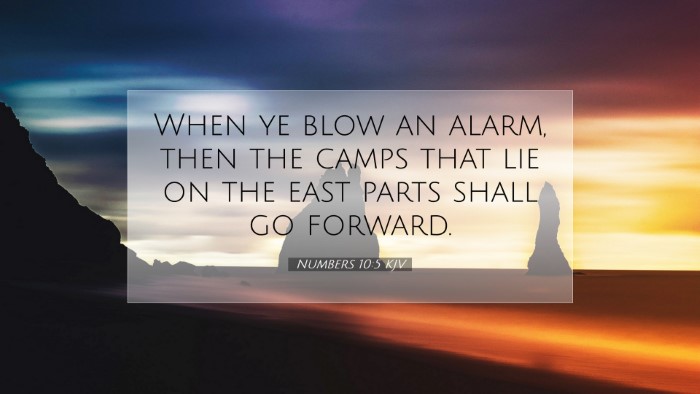Old Testament
Genesis Exodus Leviticus Numbers Deuteronomy Joshua Judges Ruth 1 Samuel 2 Samuel 1 Kings 2 Kings 1 Chronicles 2 Chronicles Ezra Nehemiah Esther Job Psalms Proverbs Ecclesiastes Song of Solomon Isaiah Jeremiah Lamentations Ezekiel Daniel Hosea Joel Amos Obadiah Jonah Micah Nahum Habakkuk Zephaniah Haggai Zechariah MalachiChapter
Numbers 1 Numbers 2 Numbers 3 Numbers 4 Numbers 5 Numbers 6 Numbers 7 Numbers 8 Numbers 9 Numbers 10 Numbers 11 Numbers 12 Numbers 13 Numbers 14 Numbers 15 Numbers 16 Numbers 17 Numbers 18 Numbers 19 Numbers 20 Numbers 21 Numbers 22 Numbers 23 Numbers 24 Numbers 25 Numbers 26 Numbers 27 Numbers 28 Numbers 29 Numbers 30 Numbers 31 Numbers 32 Numbers 33 Numbers 34 Numbers 35 Numbers 36Verse
Numbers 10:1 Numbers 10:2 Numbers 10:3 Numbers 10:4 Numbers 10:5 Numbers 10:6 Numbers 10:7 Numbers 10:8 Numbers 10:9 Numbers 10:10 Numbers 10:11 Numbers 10:12 Numbers 10:13 Numbers 10:14 Numbers 10:15 Numbers 10:16 Numbers 10:17 Numbers 10:18 Numbers 10:19 Numbers 10:20 Numbers 10:21 Numbers 10:22 Numbers 10:23 Numbers 10:24 Numbers 10:25 Numbers 10:26 Numbers 10:27 Numbers 10:28 Numbers 10:29 Numbers 10:30 Numbers 10:31 Numbers 10:32 Numbers 10:33 Numbers 10:34 Numbers 10:35 Numbers 10:36

